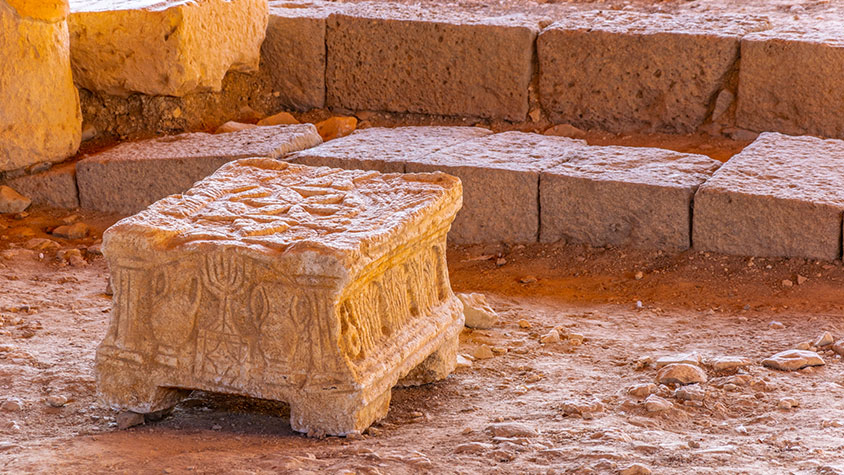It was a city once called the “ornament of all Galilee” by first century Jewish historian Josephus Flavius, but looking at the excavation of the ancient city of Sepphoris, one can only imagine this present-day national park was once the religious and spiritual hub of Jewish life in all of Israel.
The name Sepphoris is derived from the Hebrew word zippori, meaning “bird” because the view from the town gives a sense of flying. The city is seated atop a 400-foot hill, midway between the Sea of Galilee and the Mediterranean Sea. Located in the Lower Galilee region of northern Israel, it provides a clear, panoramic view of the lush, verdant Bet Netofa Valley—which includes nearby Nazareth and Cana—and is surrounded by natural springs.
The city was founded during the era of the Maccabees in the second century BCE by Alexander Janneus of the Hasmonean dynasty. Sepphoris was captured by the Romans under the command of Herod the Great in 37 BCE.
After Herod’s death in 4 BCE, the city was destroyed during a revolt. Herod Antipas (Herod’s son) rebuilt the city to become the administrative capital of the Galilee and renamed it Autocratoris.
Some scholars posit that Joseph and Jesus might have been among the woodworkers and stone masons hired from the region to complete the massive reconstruction project. While Herod eventually moved his capital city to Tiberias in AD 19, Sepphoris continued to thrive as a major city in the region.
Excavations of the site began in the early 1930s and continue to the present day, uncovering a system of structures, cisterns, and burial plots. A Roman theater with the capacity to hold 4,000 people was discovered, built into the side of a hill. Over the decades, archaeologists have uncovered an upper and lower city, a royal palace, synagogues, churches, city fortifications, aqueducts, and a stone-paved colonnaded street. You can even see remnants of wagon wheel marks in the stone.
Perhaps one of the most notable and striking features of Sepphoris are the mosaics. The city had several nicknames, but chief among them was the “Mosaic City,” and they are more than enough reason to visit the site. Boasting more than 40 mosaic floors, located in different structures on the site, there are three in particular worth mentioning here:
The Nile Mosaic
The Nile Mosaic depicts scenes of Egyptian life, particularly during the Nile River’s peak season. The mosaic features crocodiles and other wildlife, as well as the magnificent Lighthouse of Alexandria, regarded as one of the Seven Wonders of the World.
The Mona Lisa Mosaic
The Mona Lisa Mosaic is on display in the Dionysus House, a Roman mansion and one of the many structures found at the site. Just like the most famous painting of her namesake, the “Mona Lisa of the Galilee” offers her enigmatic expression preserved in one of Israel’s most exquisite works of art.
Synagogue Mosaics
In 1993, a construction crew breaking ground in a parking lot, uncovered a series of seven intricate mosaic floors in an ancient synagogue. Each scene depicts a biblical event, including Sarah’s visit from the angel of God, Abraham’s sacrifice of Isaac, a pair of identical lions, menorahs featuring first century Temple artifacts, scenes of Temple worship in Jerusalem, various offerings to the Tabernacle and Temple, and Aaron officiating in his priestly robes.
In other parts of the site, you can view a Crusader fortress and church, dedicated to Mary’s parents, Joachim and Anna, who, tradition says, lived in the city. There is much to see at Sepphoris, and this magnificent city never ceases to surprise and delight.
See one of the greatest cities of the Galilee on your trip to Israel!
Email Cindy at cindy@israeladvantagetours.com or
visit www.israeladvantagetours.com to make your trip of a lifetime a reality!








